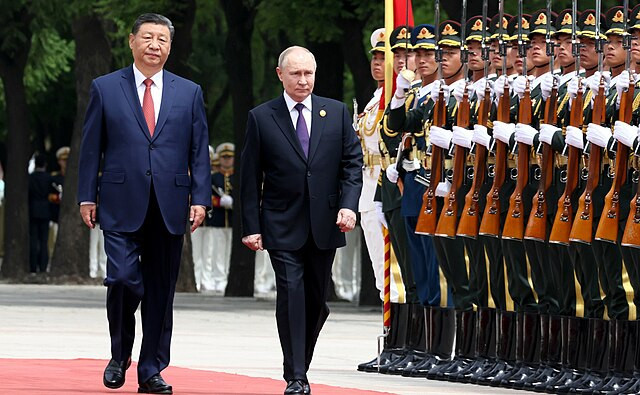As Russian President Vladimir Putin and North Korean leader Kim Jong Un solidify a new "alliance," China watches warily from the sidelines. The recent agreement between Russia and North Korea, which includes a wide-ranging treaty covering political, trade, investment, and security cooperation, has raised concerns in Beijing about the implications for regional stability.
Last week, Putin and Kim celebrated their newfound partnership with a public display of camaraderie in Pyongyang, reminiscent of the welcome Chinese President Xi Jinping received during his visit to North Korea five years ago. However, the latest agreement between Putin and Kim appears to be more comprehensive, particularly in its military commitments.
In this new defense pact, Russia and North Korea pledged to provide immediate military assistance to each other if attacked, elevating their relationship to what Putin described as a "new level." Kim referred to the alliance as a "watershed moment" in bilateral relations, signaling a significant shift in the geopolitical landscape.
The United States and its Asian allies have reacted with alarm. Japan expressed "grave concerns" about potential military cooperation between Russia and North Korea, while South Korea convened an emergency national security meeting and hinted at the possibility of sending arms to Ukraine in response.
China, traditionally the primary political and economic supporter of both Russia and North Korea, has remained officially silent on the new treaty. A spokesperson for China's Foreign Ministry called it a bilateral matter, avoiding direct commentary. Despite this official reticence, analysts suggest that Beijing is likely monitoring the situation closely.
Liu Dongshu, an assistant professor at the City University of Hong Kong, explained that China seeks to maintain control over the situation on the Korean Peninsula. "Beijing is worried that Moscow's assistance to Pyongyang, especially on military technology, would further enable and embolden the erratic Kim regime," Liu said. China aims to prevent escalation while avoiding the collapse of North Korea, which could bring U.S. influence closer to its borders.
The deepening Russia-North Korea alliance complicates China's position. Historically, Russia has aligned with China on North Korea issues, but its current reliance on Pyongyang for support in Ukraine threatens to destabilize this balance. The U.S. claims that North Korea has supplied Russia with significant quantities of munitions since September, although both Moscow and Pyongyang deny these allegations.
General Charles Q. Brown, Chairman of the U.S. Joint Chiefs of Staff, acknowledged that the new pact could create friction between China and Russia. "We've got someone else who's kind of nudging in now, so that may drive a little bit more friction," Brown said. He noted that the agreement appears broad and not overly binding, indicating a cautious approach to the new alliance.
The historical context of these alliances is significant. The mutual defense pact between North Korea and Russia echoes a 1961 treaty between North Korea and the Soviet Union, which offered stronger security assurances during the Cold War. In contrast, the Sino-North Korea Treaty of Friendship, Cooperation, and Mutual Assistance, also signed in 1961, remains in place and represents China's only formal military alliance.
Despite the new alliance between Russia and North Korea, China remains a crucial player. Beijing is the largest trade partner for both countries, providing vital economic lifelines amid international sanctions. Yun Sun, director of the China program at the Stimson Center, emphasized China's irreplaceable role. "China doesn't think that an alliance between Russia and North Korea would be a betrayal," Sun said. "They still need to rely on China despite their alliance."
Edward Howell, a lecturer at the University of Oxford, noted that any significant meeting between Putin and Kim would inevitably involve discussions about China. "Russia will know full well that China does not want to be left out of any substantial negotiations involving North Korea," Howell said.






